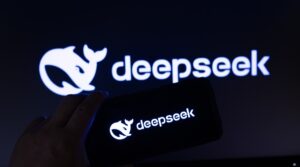Iris.ai CEO Cautions That DeepMind’s Latest Research Regulations May Hinder AI Innovation

Google DeepMind Tightens Research Sharing Policies
The recent announcement about Google DeepMind’s new restrictions on sharing research has raised significant concerns about the future of AI innovation. The CEO of Iris.ai, a prominent European AI startup, has voiced worries that these changes will have a detrimental effect on technological progress in artificial intelligence.
Changes in Research Sharing
DeepMind’s adjustments involve stricter rules for publishing AI studies. According to reports from Financial Times, the lab has implemented additional layers of vetting and administrative hurdles. This makes it increasingly difficult for researchers within the company to share their findings. The intention behind these measures is to maintain a competitive edge in the rapidly evolving field of AI.
Founded in 2010 and acquired by Google in 2014, DeepMind has historically been at the forefront of breakthroughs in computer science. However, competition has intensified in recent years, especially with the rise of companies like OpenAI and DeepSeek. Responding to mounting pressure, DeepMind’s leadership appears to be prioritizing safeguarding its innovations and intellectual reputation.
Concerns from Industry Leaders
Anita Schjøll Abildgaard, co-founder and CEO of Iris.ai, has expressed deep concern over these developments. She argues that the new restrictions signify a shift away from the culture of openness and collaboration that has characterized AI research and development.
"DeepMind’s decision marks the end of an era of openness and collaboration in AI research," Abildgaard stated.
The Ripple Effect on AI Innovation
At first glance, it may seem that DeepMind’s restrictions could benefit other AI research labs, allowing them to gain greater visibility. However, Abildgaard stresses that this is not necessarily the case. The limitations imposed by DeepMind will restrict access to its groundbreaking work, which has historically influenced countless projects across various sectors.
One notable example is AlphaFold—a system developed by DeepMind that accurately predicts protein structures. This tool has been celebrated as a significant advancement in biology, offering potential solutions for issues such as drug discovery and climate change mitigation.
"It’s hard to imagine projects of this importance being released so readily under this new diktat," Abildgaard noted, highlighting the potential impact on future developments.
Long-Term Implications for Research
The implications of DeepMind’s decision are troubling for the broader research community. Fewer researchers will have access to the groundbreaking findings produced by DeepMind, which could slow progress across various fields that depend on such research. Abildgaard called on AI companies to reinforce their commitment to sharing knowledge openly.
"Europe has one of the most vibrant open-source research communities globally," she observed. "As DeepMind turns inward, smaller research communities can distinguish themselves by embracing collaboration."
The Future of AI Research in Europe
In the context of these challenges, the European AI landscape continues to grow. The commitment to open-source projects may serve as a counterbalance to the restrictions put in place by larger entities like DeepMind. In this environment, smaller organizations can leverage collaborative research efforts to drive innovation and breakthroughs in AI.
Such a diverse ecosystem could lead to novel solutions that benefit not only the tech industry but also address pressing global issues. Events like the TNW Conference, taking place in Amsterdam, are valuable for showcasing Europe’s advancements in AI and encouraging discussions about the importance of open research.
In summary, while DeepMind’s new policies may be aimed at preserving its competitive edge, they pose significant risks to the collaborative spirit essential for AI advancements. The AI community must remain proactive in promoting openness to ensure ongoing innovation.






